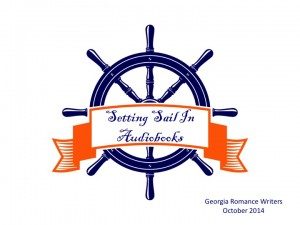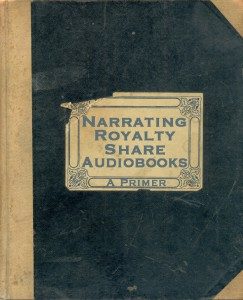An audiobook listener on Goodreads wrote recently:
“I’m hoping the powers-that-be realize this (and care) and we’ll see more audiobooks being narrated by dual-gender narrators.
And I don’t mean simply dividing up the chapters between a male and female narrator to read…I like the dialogue narrated by the relevant gender.”
I can tell you why most books have a solo narrator: COST.
I produced and co-narrated the 4-book Blue Suede Memphis mystery series (fun, cozy mysteries with romantic elements) where I voiced the narrative and all of the female parts, and a male actor (my husband Drew!) voiced all of the male parts — a narration style known as DUET.
A DUAL narration occurs where 2 actors narrate all the characters’ lines in the chapters associated with their main characters’ points of view.
While I love the sound of the finished product and agree that having both genders makes the production so much more interesting, it’s a very time-consuming and tedious process to create an audiobook this way.
First, you have to have production rights to even be able to do a multi-voice production. One mid-size publisher told me that we couldn’t use 2 voices on a particular book because they didn’t have the production rights for it. I guess the production rights allow you to make a play or movie from the book’s text and are somehow different than audio rights.
Next, you cast the 2 actors and must coordinate their recording schedules. If I weren’t married to my co-star, the scheduling step alone could have derailed the production. The schedule is less of a consideration when the narrators are reading whole chapters instead of performing dialogue.
Once the schedule is worked out, you turn to the cost of studio time, both for the recording and the editing/mastering. The Big 5 publishers can afford real-time studio hours in big cities for their high-profile, bestselling titles. Everyone else — small and mid-size publishers and indie authors — usually looks to control costs by casting narrators with home studios. Depending on the project, the editing might be done by the publisher, the narrator, or an editor sub-contracted by the narrator.
Normally, my rule of thumb is that it takes 2 hours in real time to record 1 finished hour and 3 hours in real time to proof/edit/master for 1 finished hour. With the books in this series, we spent at least an additional hour on both phases. A book that runs 10 hours with 1 narrator (or 2 or more narrators who read different chapters) therefore might require 50 hours in real time to record and edit. The same book with 2 narrators and interspersed dialogue might require 70 hours of production time.
Studio time isn’t the only cost consideration. I also have the opportunity cost of other projects or promotion that I can’t do when an audiobook requires more time than usual to complete.
In this series, I did all of the narrative portions and the female voices. I left airtime in the dialogue where male characters spoke. As Drew directed me, he mouthed his lines and cued me in for my next sentence.
Then, we switched places; I directed him as we recorded his parts:
- I cued him by playing my audio in his headphones.
- I pressed Record in the software.
- He delivered his lines. Everything true of solo narration is true here, too, as far as re-recording to fix inflection, accent, flubs, etc. In fact, it may be harder to be the 2nd person because you’re kind of coming into the dialogue cold. I think that person has to work harder to connect to the text because they weren’t immersed in the story to that point.
- I stopped recording before he spoke over my next line.
- Sometimes we originally left too much time for his parts, sometimes not enough. Sometimes his delivery caused me go back to my part and re-do it to change some nuance.
As a result, editing the dialogue is EXTREMELY time-consuming. When I am narrating all voices, as is customary, I naturally leave the appropriate amount of time between characters. The editor is not constantly adjusting the timing to make the conversations flow smoothly and naturally. In these productions with true M/F dialogue, the editor’s job was even tougher given the timing issues.
Due to the considerable amount of time needed for this kind of production, I’m not too eager to produce another one. Instead, I’m looking for dual narration projects with 2-3 1st person POVs (romance or mystery) where each narrator is responsible for entire chapters.
Do you like hearing books with 2 narrators? Do you know of a book for which you’d like to hear a dual narration in the audiobook? Please leave a note in the comments!




